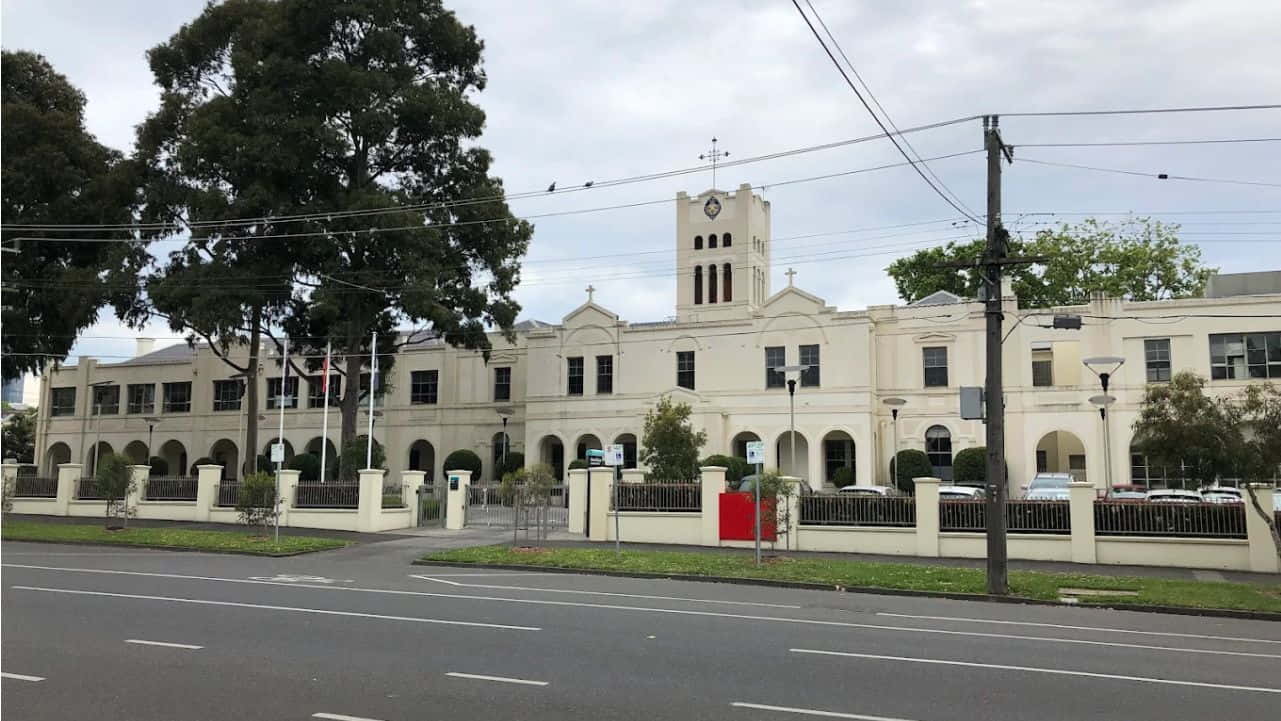Exploring the history of orphanages in Victoria offers a unique glimpse into how communities once cared for children in need.
From imposing Gothic-style structures to humble cottage homes, these sites reflect changing social attitudes and the evolution of child welfare in Australia.
Many locations have been repurposed but still hold strong ties to their past, making them valuable destinations for local history enthusiasts and researchers.
Information in this guide is based on credible historical records, but details such as visiting arrangements, opening hours, and available services may change over time.
Always confirm with the relevant institution or local authority before planning a visit.
1. Melbourne Orphanage – Pioneering the Cottage Home System
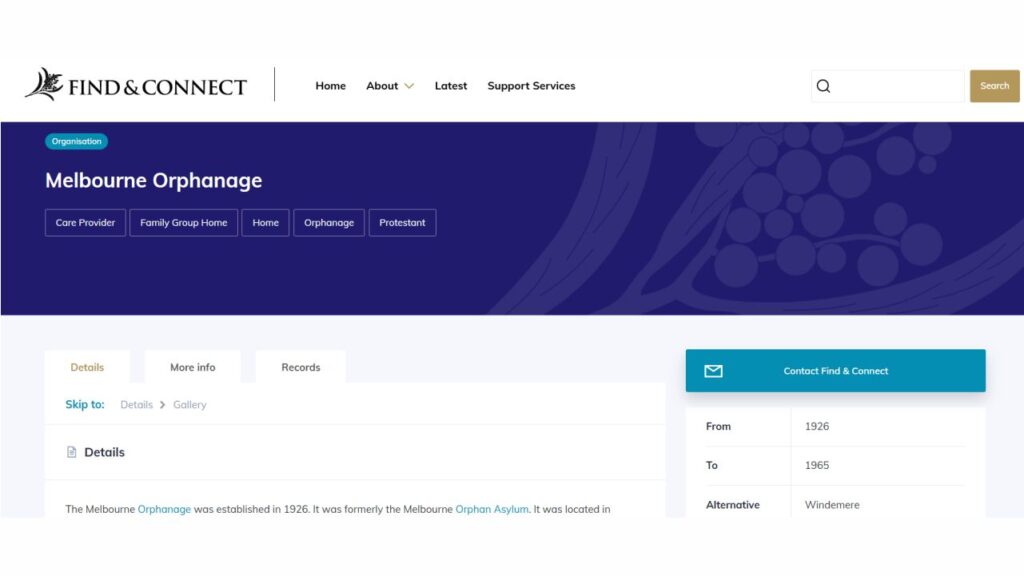
Before delving into the site details, it’s worth noting that the Melbourne Orphanage played a key role in shaping modern foster care models in Victoria.
Its transition from a large dormitory structure to smaller cottage homes was groundbreaking in the 1920s.
Contact & Location
- Melbourne Orphanage, Butler Street, Brighton, Victoria 3186
- Later site: Glen Waverley, Victoria 3150
- Website: Melbourne Orphanage record on Find & Connect
Opening Hours
| Day | Opening Hours |
|---|---|
| Monday | By appointment only |
| Tuesday | By appointment only |
| Wednesday | By appointment only |
| Thursday | By appointment only |
| Friday | By appointment only |
| Saturday | Closed |
| Sunday | Closed |
Key features
Before exploring key features, remember this is primarily a historical site and not an operational service.
- Archival research access available
- Historical building remnants in Brighton
- Transition model from dormitories to cottage homes
Records are accessed by arranging visits through local archives. While there’s no public “walk-in” tour, researchers often appreciate the detailed records and photographs preserved.
Why It’s Worth Exploring
The shift to family group homes in Glen Waverley marked a significant change in Victoria’s childcare system.
Brighton residents and heritage enthusiasts can still identify traces of the original site, making it a quiet but meaningful location for those exploring suburban history.
2. Ballarat Orphanage – A Landmark of 19th-Century Childcare
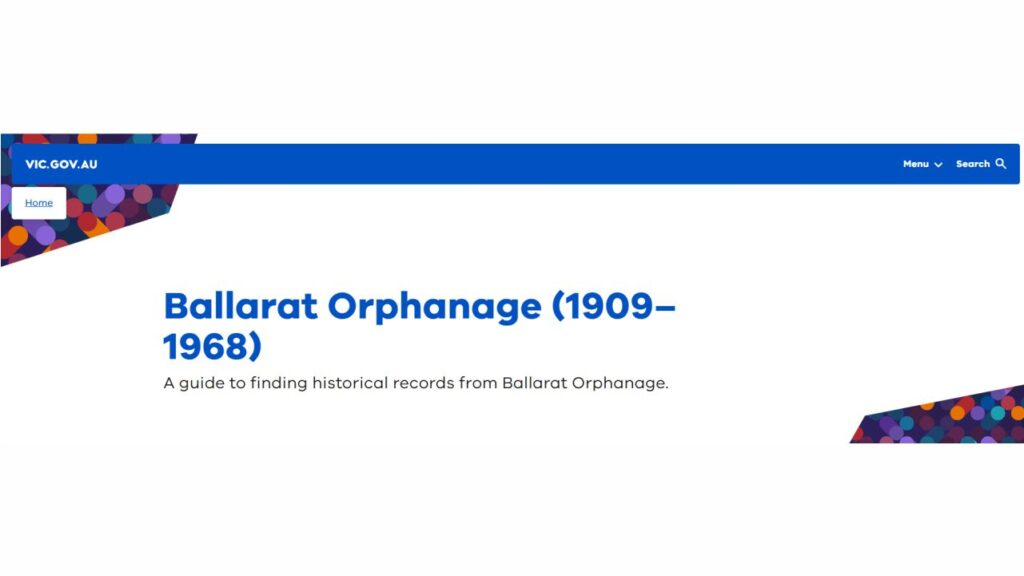
Ballarat Orphanage is one of the most visually striking historic care institutions in regional Victoria. Established in the mid-1800s, its imposing architecture still makes an impact today.
Contact & Location
- Ballarat Orphanage, 200 Victoria Street, Ballarat, Victoria 3350
- Website: Victorian Government’s Ballarat Orphanage record
Opening Hours
| Day | Opening Hours |
|---|---|
| Monday | External viewing only |
| Tuesday | External viewing only |
| Wednesday | External viewing only |
| Thursday | External viewing only |
| Friday | External viewing only |
| Saturday | External viewing only |
| Sunday | External viewing only |
Key features
The site is no longer a functioning orphanage, but heritage lovers can explore its surroundings and records.
- Gothic-style architecture
- Former on-site school, farm, and workshops
- Holiday facility at Queenscliff during its operation
Visitors often ask whether tours are available while there are no formal tours, heritage open days in Ballarat sometimes feature the site.
Notable Features & Local Relevance
For those near Lake Wendouree, this location offers a direct connection to Ballarat’s social history. The scale of the original building and its community role make it a landmark worth learning about.
3. St Aidan’s Orphanage – Bendigo’s Good Shepherd Legacy
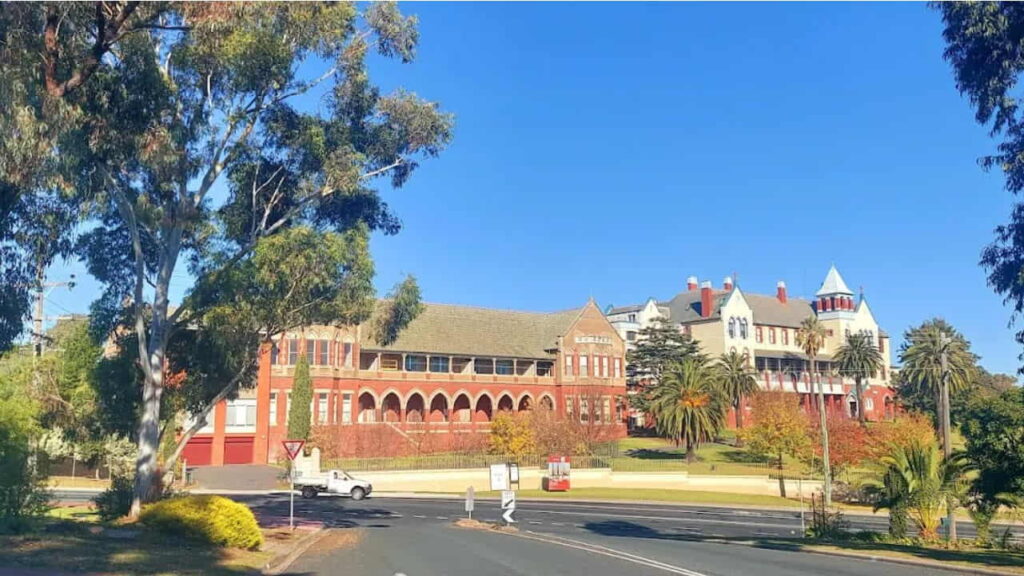
Serving Bendigo for much of the 20th century, St Aidan’s was a large and well-resourced orphanage operated by the Good Shepherd Sisters.
Contact & Location
- St Aidan’s Orphanage, 308 Barnard Street, Bendigo, Victoria 3550
- Website: Victorian Government’s St Aidan’s Orphanage page
Opening Hours
| Day | Opening Hours |
|---|---|
| Monday | External viewing only |
| Tuesday | External viewing only |
| Wednesday | External viewing only |
| Thursday | External viewing only |
| Friday | External viewing only |
| Saturday | External viewing only |
| Sunday | External viewing only |
Key features
Although no longer operating as a children’s home, the property retains historical value.
- Former boys’ block and girls’ wards
- Re-education Centre
- Self-contained living units
Inquiries about archival material can be made through the Catholic Diocese of Sandhurst. Some visitors are surprised to learn that photographs and staff records from its operational years are still available.
Highlights & Why Visit
For anyone in central Bendigo, St Aidan’s stands as a reminder of faith-based community services. Its extensive grounds and purpose-built facilities give insight into early 20th-century care practices.
4. St Vincent’s Boys’ Orphanage – Melbourne’s Oldest Catholic Orphanage
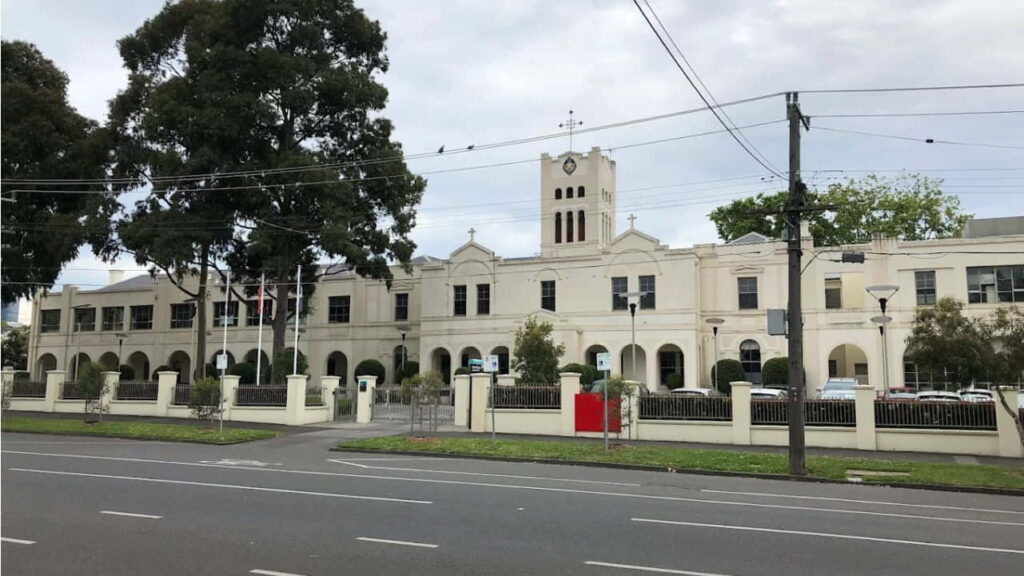
St Vincent’s holds a special place in Victoria’s welfare history as the first Catholic orphanage in the state.
Its roots stretch back to the gold rush era, making it an enduring landmark in Melbourne’s community care legacy.
Contact & Location
- St Vincent’s Boys’ Orphanage, Cecil Street, South Melbourne, Victoria 3205 (near South Melbourne Market)
- Website: MacKillop Family Services – St Vincent’s Boys’ Orphanage history
Opening Hours
| Day | Opening Hours |
|---|---|
| Monday | By appointment only |
| Tuesday | By appointment only |
| Wednesday | By appointment only |
| Thursday | By appointment only |
| Friday | By appointment only |
| Saturday | Closed |
| Sunday | Closed |
Key features
This historic building now serves as the headquarters for MacKillop Family Services.
- Heritage-listed structure
- Archival access for family tracing and historical research
- Site of early Catholic education programs
Those seeking information often ask if the building’s interiors can be toured while public tours aren’t generally offered, heritage events occasionally open access to certain areas.
Key Reason to Visit
Located just a short walk from the South Melbourne Market, this site combines religious heritage, architectural interest, and social history.
It’s a must for anyone tracing family histories or studying Melbourne’s Catholic welfare institutions.
5. Australian Orphanage Museum – Geelong’s Archive of Childhood History
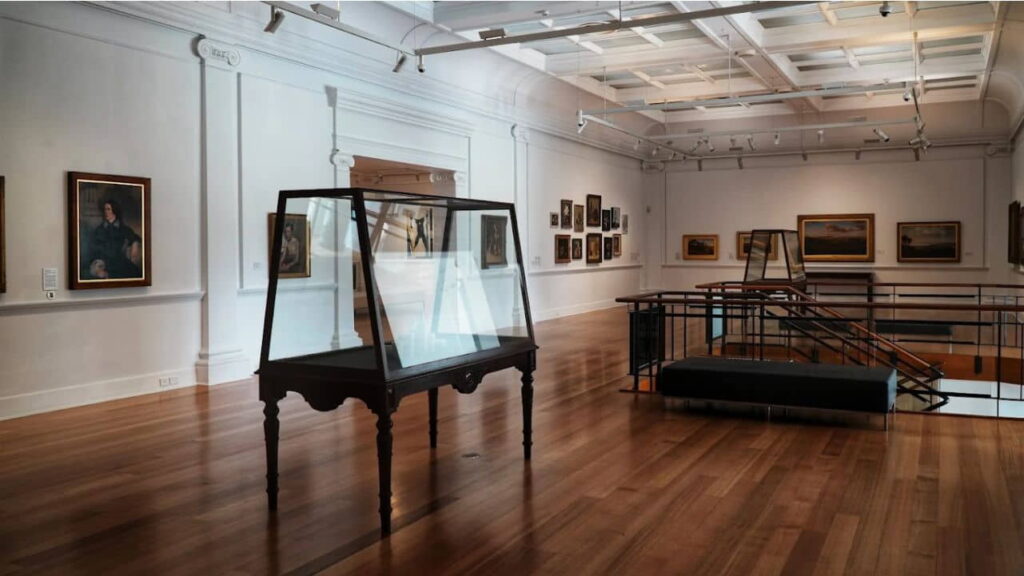
Unlike the other entries, this museum remains fully operational and welcomes the public regularly.
It’s a concentrated hub of orphanage history from across Australia, with many exhibits focused on Victoria.
Contact & Location
- Australian Orphanage Museum, 351 Ryrie Street, Geelong, Victoria 3220 (near Eastern Beach)
- Website: Australian Orphanage Museum official site
Opening Hours
| Day | Opening Hours |
|---|---|
| Monday | Closed |
| Tuesday | 10:00 AM – 4:00 PM |
| Wednesday | 10:00 AM – 4:00 PM |
| Thursday | 10:00 AM – 4:00 PM |
| Friday | Closed |
| Saturday | 1:00 PM – 4:00 PM |
| Sunday | Closed |
Key features
The museum is a curated space designed for public education and preservation of institutional care history.
- Permanent and rotating exhibitions
- Authentic artifacts from Victorian orphanages
- Personal stories from former residents
Visitors often ask whether the museum covers only Geelong’s history the answer is no, it includes a broad range of institutions across Victoria and Australia.
Why This Museum Stands Out
For those near Geelong Waterfront, it’s a rare opportunity to see original records, photographs, and memorabilia under one roof.
The museum’s ability to connect individual stories with larger social movements makes it both an educational and emotional experience.
These five locations capture a wide spectrum of Victoria’s orphanage history from former institutional sites to a living museum preserving their stories.
Whether you’re researching family links, studying social history, or simply curious about your local area, each offers its own path into the past.
